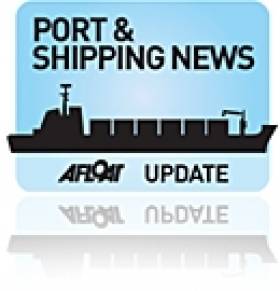Displaying items by tag: Foyle Rambler
Donegal Ferry Services Under Review
The cross-border service is funded by Donegal County Council and Limavady Borough Council. The route in recent years has experienced an unfavourable exchange rate, increased cost of fuel, poor weather, a depressed tourism market sector and notably reduced construction traffic, contributing to a sharp decline in demand. In the current climate the local authorities may find it difficult to provide funding as they scale back on budgets.
Record levels in 2005/2006 saw traffic reach 106,179 vehicles and 302,740 passengers. Such was the success of the service annual subsidies for 2008 and 2009 were not required. According to the latest 12-monthly traffic figures for June 2009-June 2010, vehicle volumes dropped to 52,669 and passengers levels have decreased more than halve to 149,455.
The 10-minute route is operated by the 44-vehicle capacity Foyle Venture which served the Kilimer-Tarbert route for the Shannon Ferry Co. The mid-west estuary ferry was replaced by newbuild Shannon Breeze in 2000 and later sold to Lough Foyle Ferry Co.
When the Lough Foyle route began operations in 2002, the service received a subvention of €108,000 each from the local councils. Over that timeframe, the route has received a total funding of €500,000 from Donegal County Council.
In 2009, the two local authorities agreed to provide a €200,000 subvention, but this runs out in March 2011. An application has also been submitted to the Special EU Programmes Body for funding.
On the west side of the Inishowen Peninsula is the Bunbcrana-Rathmullan service, which is also in doubt if a subsidy from Donegal County Council cannot be maintained. The Lough Swilly route started in 2004 and is served by the 20-vehicle capacity Foyle Rambler, a former German river-ferry. The north-west ferry route takes 25-minutes and recorded 15,000 passengers at its peak.
In busier times, tourists from the North, instead of passing through Derry city, used the 'land-bridge' routes across the Inishowen Peninsula to reach holiday-homes and popular seaside resorts throughout Co. Donegal.
























































